Juba, 15 Rabiul Akhir 1437/25 January 2016 (MINA) – Since South Sudan devalued its pound by 84 percent to the dollar on Dec. 15, prices have risen to new heights in the country, making it difficult for vast parts of the population to buy food.
Behind the devaluation is the country’s drop in oil production, which has limited what is virtually its only hard currency export, Mi’raj Islamic News Agency (MINA) reported, quoting Anadolu Agency.
A 50 kilogram (110 pound) sack of wheat flour sells at SSP1000, up from SSP300 in December of last year, according to Taban Chuil, a shopkeeper in Juba. A kilogram of meat now sells for SSP150, up from SSP50 two months ago, he added.
The official rate of exchange is now SSP316 for $100, but the black market rate is much lower.
Also Read: Syria, Jordan Condemn Netanyahu’s Visit to Occupied Syrian Buffer Zone
Inflation has now reached 109 percent, according to the government’s National Bureau of Statistics.
Everything from vegetables to fuel is imported into the country, and the low value of the South Sudanese pound makes common necessities unaffordable to many, driving some South Sudanese into poverty.
Malnourished Akon Aguer, a middle age woman and a mother of five in Juba, who cannot feed her children, has sent them onto the streets as beggars.
In the countryside, residents told Anadolu Agency on Friday that people have started eating leaves from the trees as they can afford nothing else.
Residents in the countryside told Anadolu Agency on Friday that they are obliged to eat leaves from the trees, as they cannot afford other food.
Also Read: UNIFIL Reports Over 7,300 Israeli Violations of Lebanese Airspace Since Ceasefire
Yohana Laku, a schoolteacher who earns SSP800 per month told Anadolu Agency on Friday that he has started living on credit due to high cost of living.
“My debts are beyond my salary, and I cannot afford to put meals on the table for my family anymore, let alone pay house rents or school fees,” Laku complained.
“In an economy that is largely dependent on imports from neighboring countries, there have been livelihood consequences for many households, especially those whose monthly earnings fall below 2,000 pounds,” Augustino Ting Mayai, the Director of Research at the Sudd Institute, a local think tank said in an interview with the Anadolu agency on Friday.
Over 50 percent of the people live on less than $1 per day, Mayai added.
Also Read: Russia Condemns UN Gaza Resolution, Says It Contradicts Palestinian Statehood
A two year civil crisis in the new nation has crippled oil production, reducing output to 165, 000 barrels per day, after Unity State oilfields shut operations in 2014. With less oil being exported, there is a lack of foreign currency reserves that has caused the devaluation.
Now with the new oil price drop, the country could be left without policy options, and might consider closing its only operational oil field in Paloch in Upper Nile and preserve the natural resource rather than sell it for a loss, South Sudan ambassador to Kenya James Morgan told the press on Thursday.
South Sudan suffered its first economic crisis just months after seceding from Sudan when it turned off oil production following a dispute with Sudan over export fees for oil transported in pipelines across the border to a port. The quarrel deprived the state of nearly all revenue and its main source of dollars.
Khartoum says it will only allow Juba to transport its crude through Sudanese territory if South Sudan stops aiding rebels fighting to topple the government in Khartoum.
Also Read: Israeli Airstrike on Palestinian Refugee Camp in Lebanon Kills 13
South Sudan has repeatedly denied supporting SPLM-North rebels and in turn accuses Khartoum of supporting various rebel groups in South Sudan. (T/P010/R03)
Mi’raj Islamic News Agency (MINA)
Also Read: UN Security Council Adopts US-backed Resolution to Deploy International Force in Gaza





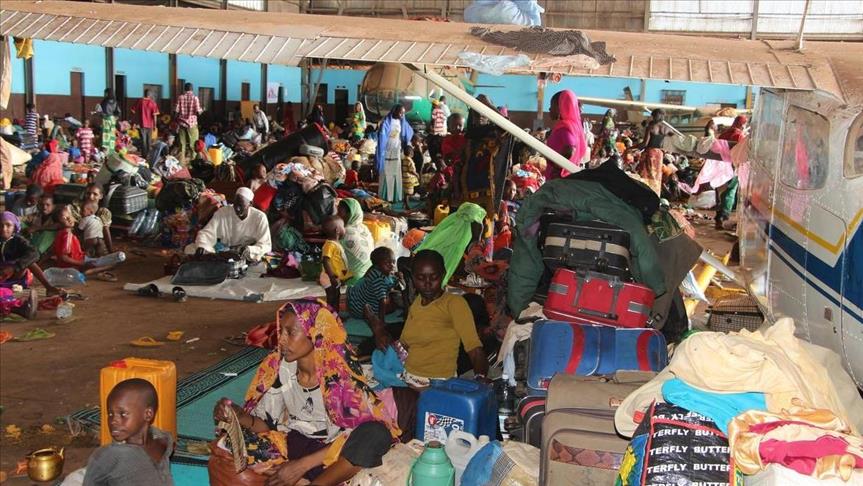











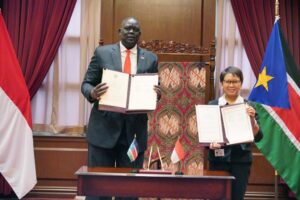
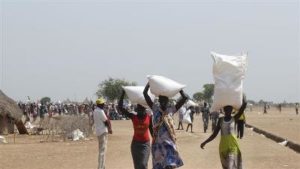
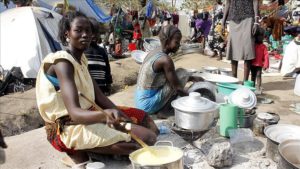

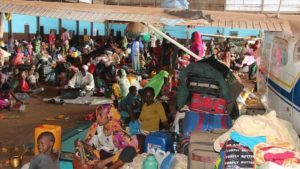














 Mina Indonesia
Mina Indonesia Mina Arabic
Mina Arabic